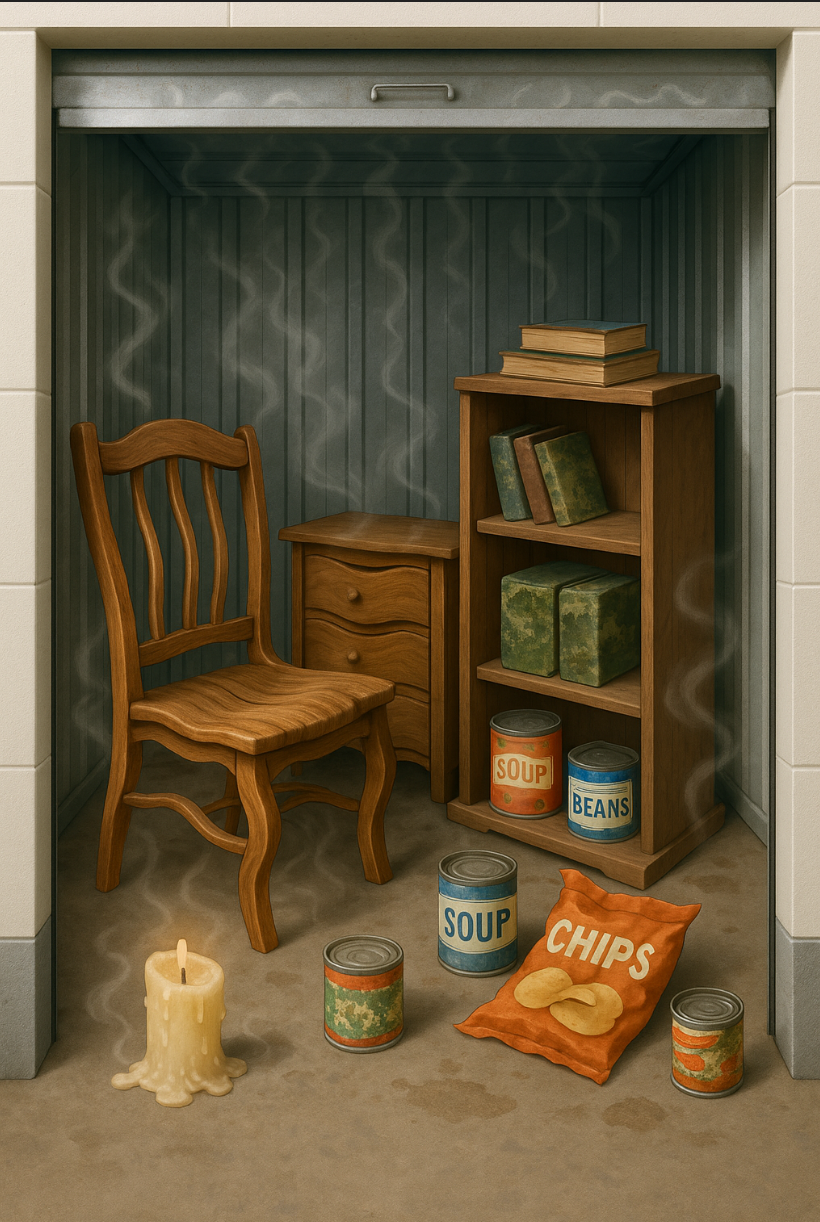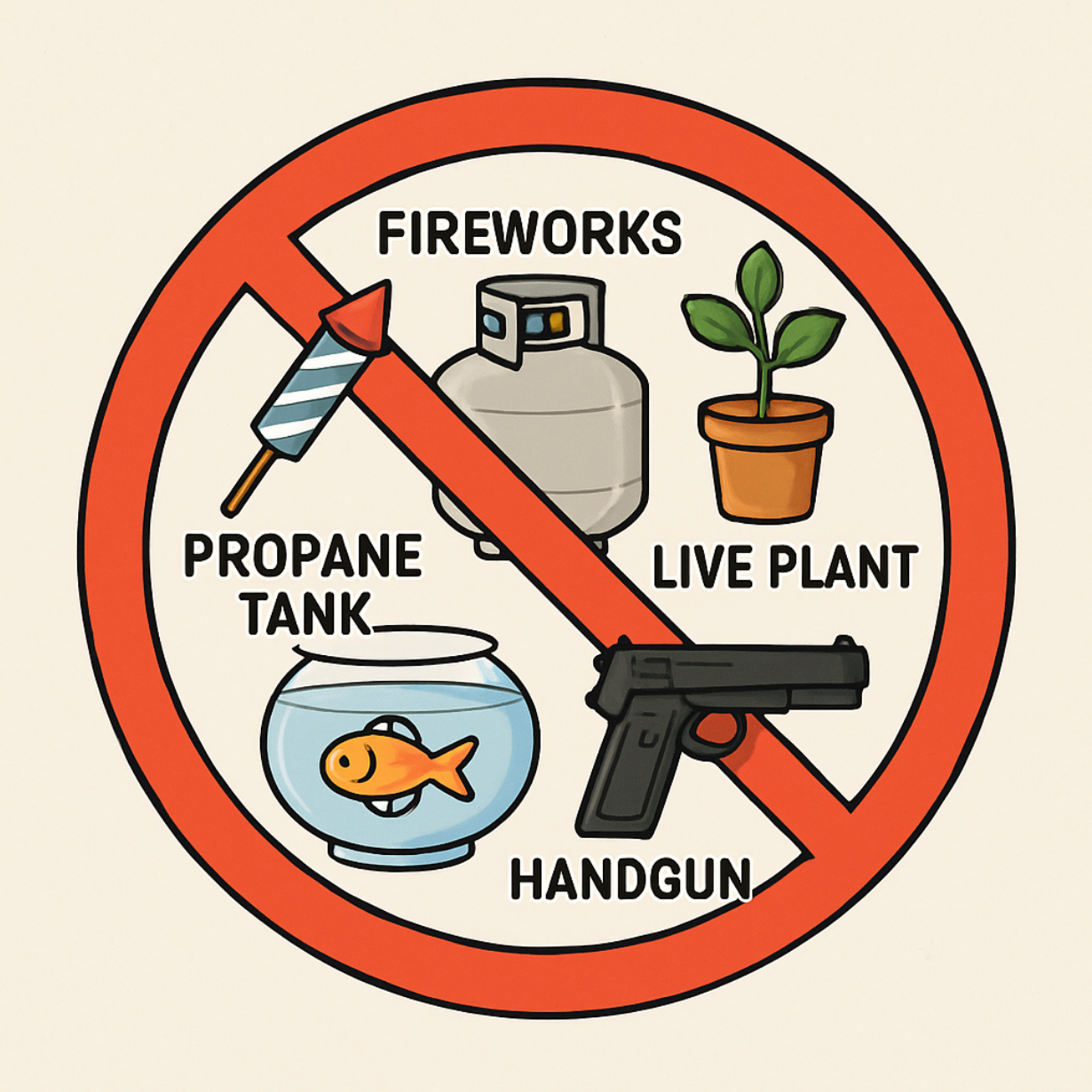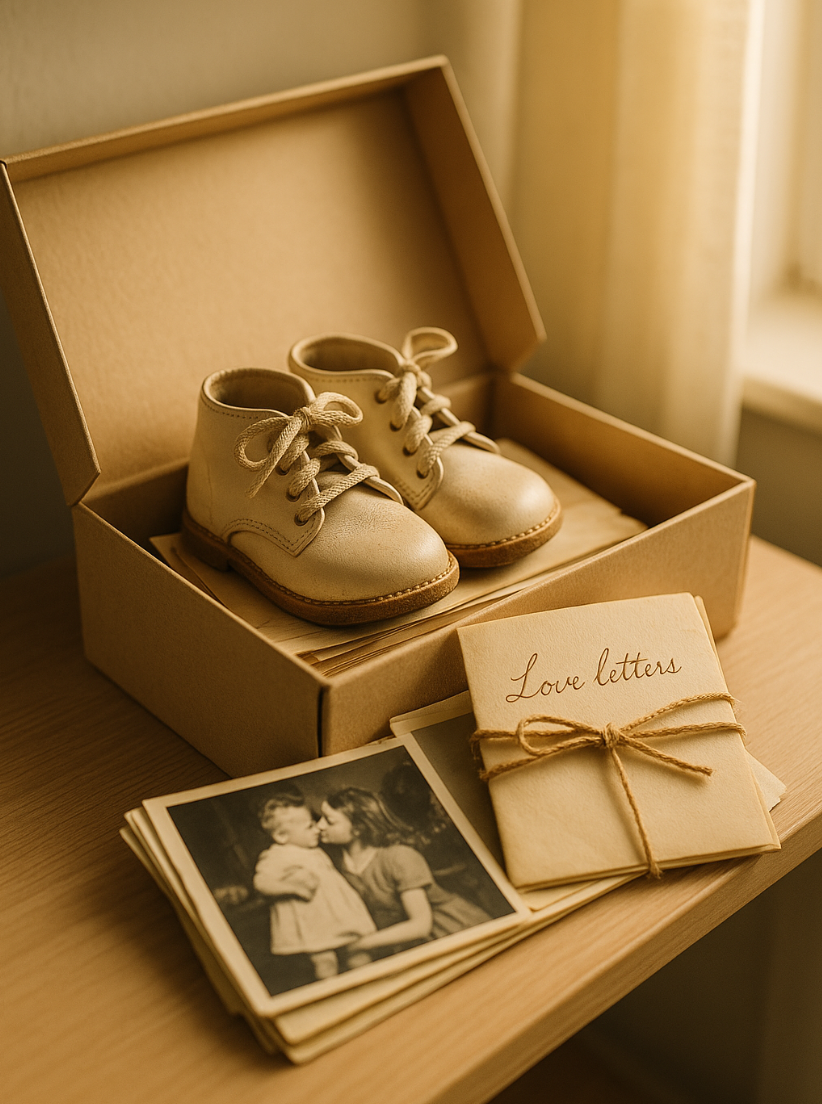What Not to Store: Avoid These Surprising Mistakes
So you’ve rented a storage unit—congratulations! Whether you're decluttering your space, moving, or just need a little breathing room at home, having a storage unit can feel like having a secret hideaway for your extra stuff. But just because you can stash it doesn’t mean you should.
Before you box up everything but the kitchen sink (and maybe even that), let’s talk about a few surprisingly common storage mistakes people make—and how to avoid them.
Temperature Terrors: Items That Can Warp or Mold
Not all things like sitting in the heat... or the cold. One of the biggest mistakes people make is forgetting that, unlike KW Safe Storage, not every storage unit is climate-controlled. You’d be surprised how many items can be ruined by a little extra humidity or heat.
Wooden furniture? That lovely dresser from your grandmother could crack, warp, or even grow mold. Electronics? Left to cook in the summer, your TV or computer might never turn on again. And don’t even get me started on vinyl records or candles—melt city.
Clothing can also fall victim, especially if it's packed in airtight containers that trap moisture. Think twice before storing wedding dresses, wool coats, or anything suede without proper protection. And books? Humidity’s favorite snack.
Pro tip: If you wouldn’t leave it in a hot attic or a freezing garage, it’s probably not safe for a basic storage unit.
Luckily, with our climate-controlled units at KW Safe Storage, this will be less of a concern for you.
We still don’t allow storage of food items to prevent attracting rodents into the property.
Legal Limits: What’s Prohibited in Ontario Storage
Okay, so this section might not be quite as fun, but it’s super important. Every province has rules—and Ontario is no exception. You definitely don’t want to get a call saying your storage unit is under investigation. (No thank you.)
First and foremost, no flammables or explosives. That means things like propane tanks, gasoline, fireworks, or even certain paints and cleaning products are off-limits. Storing these can be a serious safety hazard, and most storage companies will give you the boot for doing it.
Next up: live animals or plants. (Yes, this actually happens.) Your dog, your ficus, or your goldfish will not thrive in a dark, locked unit.
And finally, weapons, ammunition, or illegal items—yup, that’s a hard no. Even if you legally own a firearm, most storage contracts prohibit storing them onsite. Always check your rental agreement and when in doubt, ask!
Sentimental Slip-Ups: What to Keep Closer to Home
Sometimes the things we think are just “extra clutter” are actually pieces of our heart. And while storage units are great, they’re not the best place for those one-of-a-kind keepsakes.
That box of childhood drawings, your late grandmother’s handwritten letters, or your baby’s first outfit—those are items that can’t be replaced if something goes wrong. Even in well-maintained storage facilities, accidents can happen. Units can get water damage, pests might sneak in, or you might forget what’s packed where.
Instead, keep those irreplaceable items somewhere closer to home—somewhere you can check in on them from time to time. You’ll thank yourself the next time you’re feeling nostalgic and want to flip through an old photo album without digging through stacks of boxes.
Storage Insurance: When It’s Worth Considering
Ah, insurance—the thing you hope you never need but are so glad to have when things go sideways.
Many storage facilities offer insurance plans, and some even require them. But even if they don’t, it’s worth asking yourself: “What’s the value of the stuff I’m storing?” If the answer is “more than I’d want to replace out-of-pocket,” then insurance might be your best friend.
For just a few extra bucks a month, storage insurance can cover things like fire, theft, vandalism, and water damage. Check with your current renter’s or homeowner’s policy too—some will extend coverage to offsite storage units. Just make sure to ask about limits and exclusions.
One last tip: always keep an updated list (with photos!) of what you’re storing. It’ll make filing a claim way easier if you ever need to.
In Conclusion… Store Smart!
Storage units are wonderful little helpers when it comes to simplifying your life. But knowing what not to store is just as important as knowing what to store.
Avoid temperature-sensitive mistakes, steer clear of illegal or dangerous items, keep the precious memories close, and consider protecting your things with insurance.
You’ve got this—and your future self (and your belongings) will thank you.
Now go forth and store… wisely!





